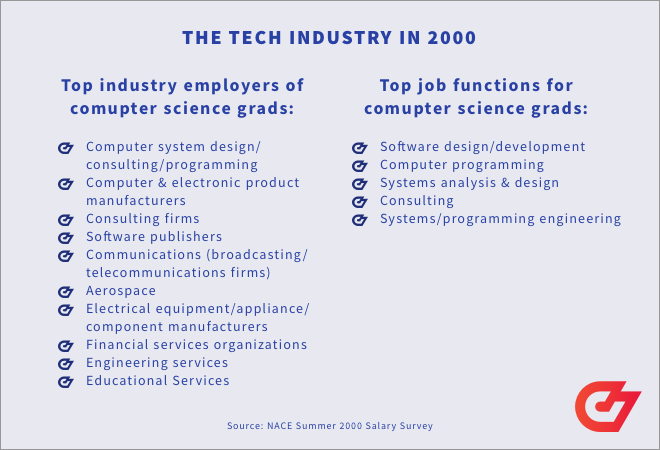
For professionals in the field, there are many challenges and opportunities that have resulted from the shift to remote consulting. In this article, we'll discuss the benefits of this new way of working, some of the challenges associated with it, and key areas of expertise for this type of consultant. We will also examine the challenges and advantages of working remotely.
Changes in remote work environment
A growing trend is the improvement of remote work environment for consultants. This trend has a variety of benefits for both businesses and employees. It allows businesses to have access to a wider talent pool and increases productivity. Twitter recently credited this shift as the reason why its workforce is more diverse. According to the company Black representation has increased in proportion by a third, while Latino hiring has increased fifty percent.
Remote work can have positive impacts on women. Remote work allows women to work more flexible hours and save time by not having to travel as much. Remote work could also be contributing to the gender gap at work. This trend is particularly evident in industries and occupations where women are underrepresented.
Remote work consulting: Benefits
You can save money and streamline your business by working remotely. A reduced requirement for office space, electricity and electronics will result in lower bills. Additionally, you will have less work to clean and maintain. You can consult from your home, which is a good option for those who want to make it a career.

Remote working is also a great way for organizations to cut down on travel expenses. This allows for more money to be used elsewhere. The organization doesn't have the expense of renting office space or purchasing facilities. Additionally, they can save fuel and energy costs. They reduce greenhouse gas emissions.
Remote work consulting: Challenges
Working remotely can present unique challenges. Team members from different cultures might have different levels and workplace cultures. It can be difficult to maintain consistency. Employees should be able to access paid time off if they have their own policies. You should be able plan breaks and allow employees time off if you want them to work uninterrupted.
Also, remote workers face communication problems. Remote workers are unable to communicate well because they lack the ability to use overheard conversations or a cubicle wall. They feel disconnected and out of the loop because they lack context. It is important to communicate frequently. Make sure to clear any misunderstandings, and be open to discussing them when necessary.
For remote work consultants, here are some key areas of expertise
There are a few things to look for when you hire a remote consultant. Remote work is dependent upon connections. Your consultant should be capable of helping you to make these connections. Here are three areas of expertise that remote work consultants should have.
Policies - A remote consultant can help design policies that will make it easier for remote workers to do their jobs. They can help with creating rules and tools for synchronous communication. They are familiar with the legal requirements of working remotely.

Cost to hire a remote consultant for work
It is important to determine the cost of hiring remote workers to assist with your project. It is much cheaper to hire a remote consultant than an employee. It's possible to save as high as 52% in some instances. There are many things that you need to keep in your mind.
Keep in mind that integration costs can be high, especially for tasks that are specific to a firm. You should also consider the costs of screening, monitoring, and hiring. Then you can decide whether it is worth it.
FAQ
Do I have to pay tax on consulting income
Yes, you will need to pay tax on your consultancy profits. It depends on how much income you make per year.
If you're self employed, you can deduct expenses beyond your salary.
You can't deduct the interest on loans, vehicle damage, or equipment costs.
Only 25% of your expenses can be claimed back if you make less than PS10,000 annually.
Even if you earn more than the threshold, you could still be taxed depending upon whether you are classified as a contractor and/or employee.
The PAYE tax for employees and the VAT tax for contractors is generally paid as you earn.
Who hires consultants?
Many organizations employ consultants to assist in projects. These include small businesses, large corporations, government agencies, non-profits, education institutions, and universities.
These consultants may work directly for the organization, or freelance. In both cases, the process for hiring depends on how complex and large the project is.
When hiring consultants, you will probably go through several rounds of interviews before choosing the person you think would be best suited for the position.
Which industries employ consultants
There are many different types. There are many types of consultants. Some specialize in one type of business, while others can handle multiple areas.
Some consultants work only for private companies, while others represent large corporations.
Many consultants also work internationally to assist companies from all corners of the globe.
Statistics
- Over 50% of consultants get their first consulting client through a referral from their network. (consultingsuccess.com)
- "From there, I told them my rates were going up 25%, this is the new hourly rate, and every single one of them said 'done, fine.' (nerdwallet.com)
- Over 62% of consultants were dissatisfied with their former jobs before starting their consulting business. (consultingsuccess.com)
- According to IBISWorld, revenues in the consulting industry will exceed $261 billion in 2020. (nerdwallet.com)
- 67% of consultants start their consulting businesses after quitting their jobs, while 33% start while they're still at their jobs. (consultingsuccess.com)
External Links
How To
How to Find the Best Consultant
The first thing to do when looking for a new consultant is to ask yourself what you want from him/her. Before you begin searching for a consultant to help you, you should be clear on your expectations. Before you start looking for a consultant, make a list. This might include skills such as project management, professional expertise, communication, availability, and technical skills. Once you have identified your requirements, you might consider asking friends and colleagues to recommend you. Ask them what their experience with consultants was like and how they compare to yours. Try searching online for recommendations if you don’t have any. Many websites allow people to post reviews about their work experience, including Angie's List and Indeed. Consider the ratings and comments of other candidates and use these data to start your search for potential candidates. Once you have narrowed down your list, reach out to potential candidates and set up an interview. In the interview, discuss your needs and ask them for their suggestions on how you can achieve them. It doesn’t matter if the person was recommended to you; it matters that they understand your business goals, and can show you how they can help.